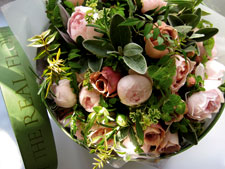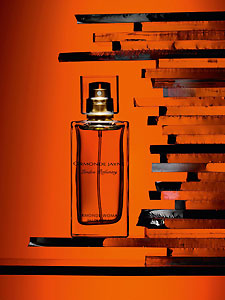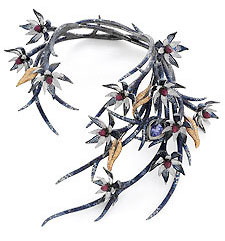
Walpole’s Brands of Tomorrow provide a window into the world of active entrepreneurship in the UK luxury goods industry.
Walpole’s Brands of Tomorrow provide a window into the world of active entrepreneurship in the UK luxury goods industry.
LONDON – This month sees the start of year three of Walpole’s Brands of Tomorrow. The idea is to help British luxury brands of the future fulfil their potential and reach the next stage. As John Ayton, co-founder of Links of London and Chairman of the programme explains: “Walpole Brands of Tomorrow takes selected companies through a quarterly cycle of education, covering areas such as business planning, marketing, distribution and internationalisation, plus one-to-one mentorship meetings with some of the UK’s most experienced luxury entrepreneurs.”
In order to be eligible for the programme, brands must demonstrate the highest standards of quality, style and craftsmanship, as well as aspire to develop into full Walpole members. While the base criterion is an annual turnover greater than £100,000 but no more than £2 million, to qualify brands need also display a unique combination of characteristics: “The brand leaders must also have an entrepreneurial management style, a clear vision of the future of their brand, and commitment to a two-way partnership in the programme, which includes active participation and regular constructive feedback with the Walpole mentors,” adds Ayton.
Brands of Tomorrow 2009 attracted record numbers of applications, from which we selected a varied and creative range of small luxury businesses that provides a window into the world of active entrepreneurship in the UK luxury goods industry.
Timorous Beasties

Described in some quarters as the Rock ‘n Roll of wallpaper, Timorous Beasties’ designers Alistair McAuley and Paul Simmons met while studying textile design at Glasgow School of Art. They have since built a business that has steadily earned great press, professional plaudits and, not least, customers passionate about their provocative textile and wallpaper designs.
Their Glasgow Toile wallpaper, to name but one, at first glance is not unlike the vistas traditionally depicted on early 19th Toile de Jouy wallpaper; but a second look reveals a nightmarish vision of contemporary Glasgow. A single roll of their subversive and exquisitely executed visions will sell for up to £250.
Like many other artistic forces behind the Walpole Brands of Tomorrow, the team has been caught on occasion between their creative and commercial selves. Timorous Beasties state that the mentoring and support have helped them to reconcile the two more confidently.
Says McAuley: “Mentoring helps you see the wood from the trees and helps you steer clear of opportunities that would cheapen the brand. When we’ve tried to be purely commercial it just backfires.” The duo tells me that despite difficult times, the business continues to do well and they are extremely positive about the future.
The Fish Society

Alistair Blair’s high-end online fish retailer sells things customers will struggle to find anywhere else: North American lobster suspended in a ten inch ice cube or giant crabs’ legs. The company specialises in frozen fish, reasoning that buying fish fresh is no guarantee of quality (something about which too few fishmongers are willing to be open). The Fish Society always buys the best stock available and refuses to supply customers with an inferior product, even if this means raising prices or simply running out of a particular fish.
“What we do is unique and what we do, we do well,” Blair comments. “We also have such a fantastic relationship with our customers. I personally author our ‘Dear Fish lover’ updates, and some of our clients send us Christmas cards. Building relationships with customers gets them involved in the business, which helps us grow.”
Sales at The Fish Society have been climbing, and the launch of a new website in 2009 should provide an important boost: “It will look cool, clean and collected – fish can be photogenic if you have the right photographer – and members will be able to buy in two clicks.”
The Real Flower Company

From the moment it is planted, each stem The Real Flower Company sells is tended to by hand. It is then individually selected before being cut, prepared and tied by the very people who watched it grow, thus ensuring the highest quality at every stage.
It is not just the human touch that separates this business from the mainstream; since the 1950s, most flower breeders have concentrated on maximising the longevity of blooms once cut, extending vase-life at the expense of scent.
The company’s Managing Director Karen Watson, a former Harvey Nichols buying director who joined the business in 2003, explains: “It’s an intimate relationship we have with scent. I believe that when you send flowers, you are sending an emotion; flowers carry a lot with them and I love the idea of that. What we’ve gone back to is flowers how they used to be. Our customers understand that having the scent and the movement, how the petals open and fall off, is worth much more than something that doesn’t move for two weeks.”
While the company opened its first shop at Selfridges on Oxford Street this year, The Real Flower Company started as a purely online venture. It is in maximising the digital space that the business identified big opportunities to deepen customer loyalty and engage clients in its values: “We already have a blog which works really well because people want to understand what’s behind our product and understand that we’re unique in that we actually know the people on our farm,” says Watson.
de Roemer

Tasmin de Roemer and Justin Packshaw launched de Roemer in 2004. Since then its collections of cashmere jumpers for women and men, fine jewellery and handbags have enjoyed a growing acclaim.
The broad collections count bold handbags, including the Geisha bag favoured by Kate Moss, and such modern cashmere classics as the women’s four-ply batwing jumper, or the 100 percent cashmere men’s ribbed cardigan. Funky jewellery is also part of the de Roemer offer, with the 2008 Spring/Summer expanded collection allowing customers to create their own charm necklaces.
Packshaw remarks that: “As a small business starting out, when you ask yourself what’s the best way to proceed, you don’t have a wealth of experience, so you call upon your gut instinct. The support of Walpole means you have a panel of experts and contemporaries to use as a fantastically valuable sounding board.”
In practice, this meant developing plans that saw de Roemer turn its focus from launching a bricks-and-mortar outlet to a fresh emphasis on further development of the online proposition. This move saved the business a potentially significant outlay in an uncertain climate, greatly boosting the chances of return on investment. “Customers will look at the brand, and if it’s not an easy, flowing experience they will drop you,” says Packshaw.
Ormonde Jayne

“The first thing my mentor did was send a mystery shopper, his sister, to my shop on Old Bond Street,” says Ormonde Jayne’s Linda Pilkington. “She told us what she thought was good – helpful staff and the like – but said that she couldn’t spend a lot of money in the shop; what would a customer get if they wanted to spend £250 on a present?” she adds.
Pilkington is an alchemist whose search for the rarest ingredients for Ormonde Jayne’s fine fragrances has taken her from Madagascar to the Amazon. Products include Frangipani eau de parfum, a range of hand-poured scented candles, including one scented with osmanthus, a fruity white flower from Japan and China.
Sales have already climbed notably over the years, but to take her fragrances to a wider audience Pilkington has invested in product development, hiring a business consultant in Dubai as well as a member of staff with expertise in maximising the brand’s web presence. In addition, online customers now have the option of transacting in local currencies.
Her broader hopes are to realise her vision for the brand, without losing artistic control or submitting to creative handcuffs: “I want around 30 outlets worldwide, but to still make the products myself and keep everything in-house.” In my view, Ormonde Jayne captures everything that is special about true luxury, with her highly personal and lengthy journey to build both product and business of the highest integrity and quality.
Shaun Leane

Renowned for his darkly romantic and beautifully crafted jewellery, the work of Shaun Leane has been described by Sotheby’s as ‘antiques of the future’.
Alongside his collections and bespoke pieces he produces for clients such as Sarah Jessica Parker and Daphne Guinness, Shaun also creates iconic catwalk pieces through collaborations with the likes of Alexander McQueen, Marc Jacobs and Givenchy.
His mentor, Theo Fennell CEO Pamela Harper, proffered business advice on his chosen distribution channels, which helped the brand appear in outlets such as Brown Thomas in Dublin, Harvey Nichols in Manchester and House of Fraser in Westfield, London.
Participation in the programme has apparently also opened up new opportunities for the business, including a joint venture with fellow Walpole Brand of Tomorrow Ormonde Jayne: now on the horizon is a diamond necklace with a secret scent component. “We are both niche luxury brands and becoming more ‘luxury’ is definitely where we are heading,” he remarks.
For Leane this means consolidating the position as a luxury ‘destination’ brand that customers won’t find in every airport, but only in a select number of extensively researched locations. Says Leane: “Brands can easily lose integrity by expanding too quickly. We want to go international, but keep it tight.”
Part of the ‘keeping it tight’ ethos means maintaining the highly-controlled production process exclusively in London: “England, and specifically London, has always had a reputation for quality manufacturing and production worldwide,” Leane comments. “I think we will see a lot of British brands return to these values. Across the world there’s a demand, a hunger for this type of British luxury.”
Guy Salter is Deputy Chairman of the Walpole

